
6 minute read
Integrated energy services
Let’s join forces to make your company’s energy management more efficient and more sustainable eon.hu/integrated business model, the company creates value for its stakeholders, while addressing environmental issues. Appropriate packaging is essential to keep products fresh and a strict requirement from a food safety aspect, but the long-term impact of packaging materials on the environment, especially plastic packaging, means there must be new, sustainable solutions.
Békefi insists that the company is an engine for change; the approach and goals for greater sustainability of packaging have been consolidated in the “World Without Waste” global strategy that was announced together with The Coca-Cola Company in 2018.
“Our commitments by 2030 include collecting and recycling the equivalent of 100 percent of the packaging we use. Our beverage packaging is already 100 percent recyclable, and we have committed to increasing the proportion of recycled materials in our bottles and aluminium cans to 50 percent.”
The most recent innovation in new packaging technologies was the €2 million KeelClipTM, replacing the shrink wrap previously used for multipack aluminium cans with 100 percent recyclable cardboard packaging, thereby reducing plastic consumption by 230 tonnes per year.
In addition, the amount of plastic needed to produce PolyEthylene Terephthalate (PET) bottles has been reduced by 20 percent since 2010. “We use 170 tonnes less aluminium per year for cans of soft drink packaging in our plants, and we also gradually reduce the amount of secondary packaging materials needed to store and move our products,” Békefi adds.
“We continue to explore innovative packaging technology solutions that could replace commonplace packaging materials in the future –such as the paper bottle prototype The Coca-Cola Company has developed together with the Danish start-up Paboco.”
Precision Picking
Continuing on the theme of constant innovation, CCHH is annually increasing production and logistics capacity. Its latest advancement in this field was the introduction of robot picking technology in its central warehouse in Dunaharaszti last year.
“The integration of digitalisation and automation into our corporate operations is of strategic importance, as we want to serve Hungarian households and the 17 export markets from a modern, 21st century production unit,” says Békefi.
“The artificial intelligence (AI)based robot system, installed with an investment of €1.8 million, helps us to accurately prepare customer orders and fits neatly into this strategy,” he adds.
The investment is a unique logistical innovation in the Hungarian food industry. The technology handles the company’s top 20 best-selling products based on their position in the warehouse with zero error.
“Processes like the pre-delivery assembling, palletising, and wrapping of new products are carried out by three automatic robotic arms, forklifts and smaller vehicles responsible for moving of the products,” explains Békefi.
The three robotic arms can assemble up to six pallets per hour, working twice as fast as a human workforce.
The combination of human and robotic resources increases picking efficiency by 15 percent. By allowing faster responses, it also enables accurate changes to company needs.
“We are proud to be the first in the Coca-Cola HBC AG, which has a presence in 29 countries, to introduce robot technology into our logistics processes.”
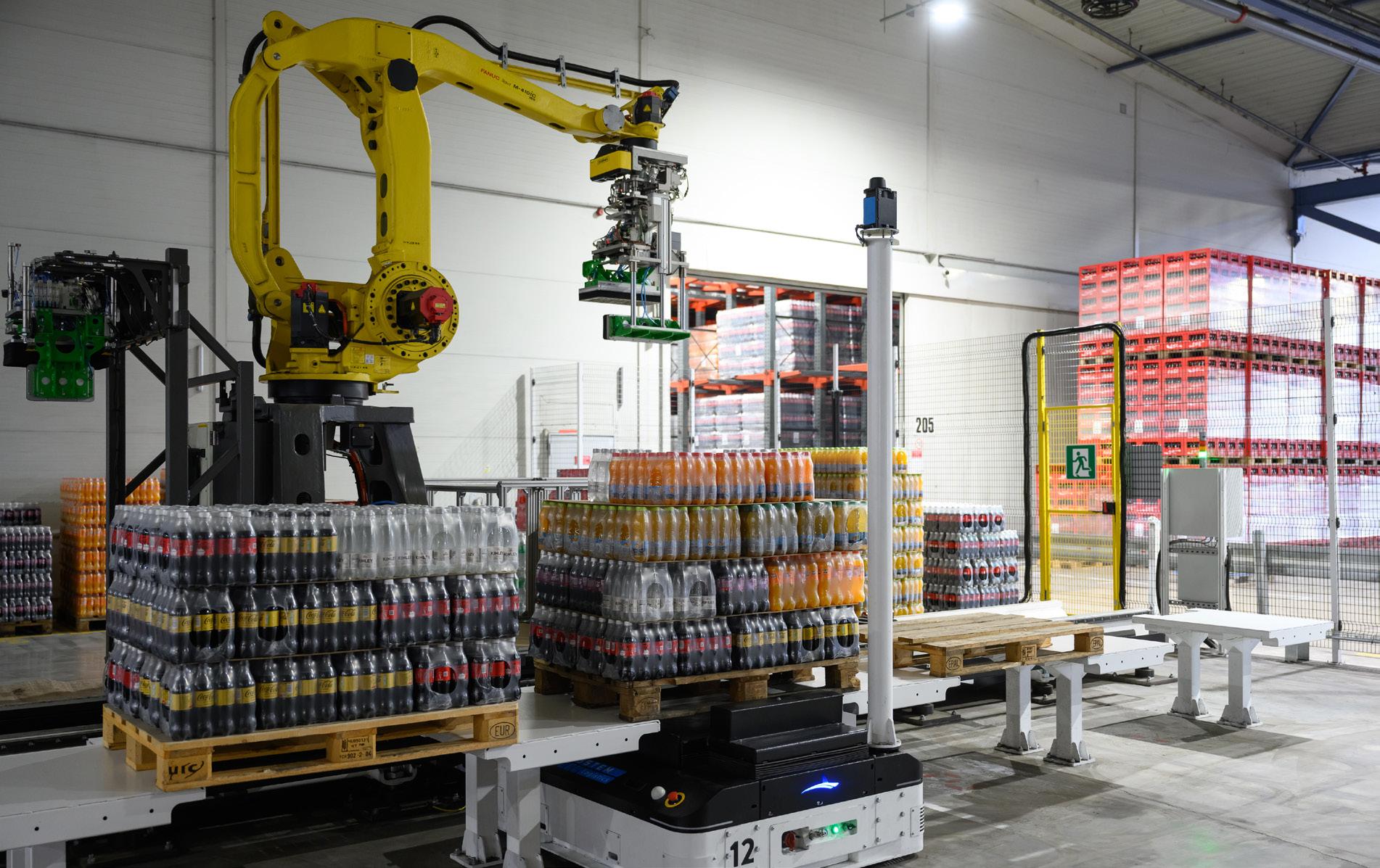
The newly introduced robot picking technology is not the only efficiency improvement that supports digitalisation.
“Smart glasses have been used in the picking process since 2020, which enables our employees to assemble customer orders for delivery in the warehouse using voice-guided instructions,” reveals Békefi.
The vision picking technology is powered by AI which improves the quality and efficiency of work, and it can help develop current working processes by making a wide range of data available to analyse.
“Up to 24 people can work safely at the same time in the picking area using smart glasses at the central warehouse. The picking accuracy is 99.9 percent, and the efficiency of order assembling has increased by 10 percent.”
Message In A Green Bottle
Parent company Coca-Cola HBC AG has made a commitment to achieve
Sustainable and Inspired Packaging that meets the needs of consumers and our planet.
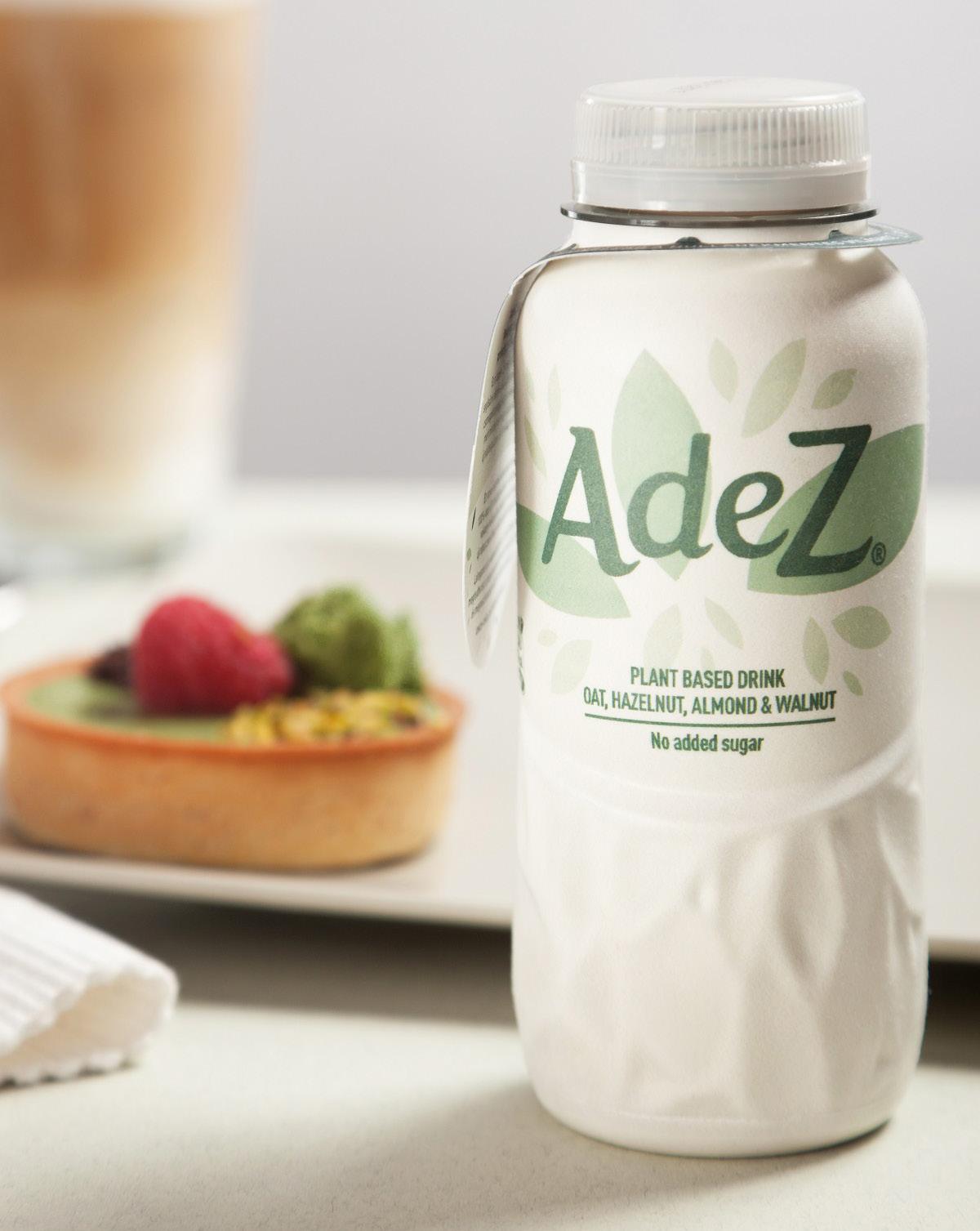
net zero emissions across its entire value chain by 2040.
“Through an existing and approved science-based target, we will reduce our value chain greenhouse gas (GHG) emissions in Scopes 1, 2 and 3 by 25 percent by 2030 across the CCH Group, with a further 50 percent reduction in the following decade,” assures Békefi.
To address the 90 percent of emissions resulting from third party actions, the group of companies will broaden its existing partnership approach with suppliers. This will maximise the contribution of partners to these sustainability goals. Wherever the issue cannot be eliminated entirely, they will mitigate these by investing in other climate protection measures.
“We have switched to significantly more energy-efficient lighting in our central warehouse, and the number of hybrids and vehicles with alternative drives in our company fleet is increasing every year,” informs Békefi.
In 2022 alone the company replaced 5,000 coolers with more modern, energy-efficient ones, saving commercial partners up to 60 percent of energy.
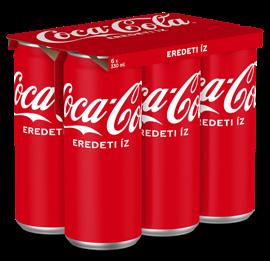

“Between 2002 and 2022 we made investments worth €45 million in our Zalaszentgrót plant. Most longterm investments were for capacity expansion, technological innovation, and environmental improvements.
“The Zalaszentgrót water plant –like the one in Dunaharaszti – uses 100 percent green electricity. The green operation of the plant in Zalaszentgrót is enhanced by heat pumps, supplying green thermal energy to the premises, making its operation almost entirely carbon neutral,” he adds.
A Benevolent Beverage Company
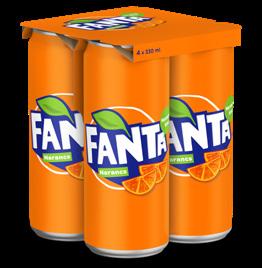
CCHH has proudly been a partner in several volunteering initiatives for years with various non-governmental organisations (NGOs).
“Our objective remains to empower local communities through our responsible operations, and to adapt to their needs and expectations,” says Békefi.

With the support of The CocaCola Foundation – The Coca-Cola Company’s global philanthropic arm – the company joined efforts with water management authorities and an NGO called Plastic Cup in 2019 to clean up the Tisza, Hungary’s second largest river.
The Zero Waste Tisza River programme aims at providing constant protection, waste collection and recycling of accumulated waste.
The initiative has removed more than 100 tonnes of waste from the river since 2019 and has introduced several technological innovations, such as a water purifying container to make clean water more accessible to the local population in Subcarpathia, which has grown due to the ongoing conflict in neighbouring Ukraine.
Plastic Cup mobilised more than 100 people, who donated thousands of working hours to clean up the Tisza and its tributaries. CCHH volunteers also joined the programme with more than 200 enthusiastic colleagues managing to shift eight tonnes of waste.
CCHH’s philanthropic concerns as a responsible corporate citizen are one of the many factors that first attracted Békefi himself to work for the company.
“It is a community of dedicated, devoted, and enthusiastic people,” he shares. “It makes me proud to see what we have done to achieve our sustainability goals.”
This is proven by the company’s corporate volunteer programme.
In operation since 2007, it is a key element of its corporate social responsibility (CSR) strategy.
“Within the framework of this programme, our employees support important local projects, and help NGOs, educational institutions and communities that do not have all the resources or skills they need.
“Our company has also been working with the Hungarian Food Bank Association for many years. In the current economic situation, we believe it is more important than ever to reduce food waste as it is in our common interest.”
COCA-COLA X RED CROSS
Coca-Cola Hungary (a collective name for CCHH and The Coca-Cola Company’s local representation) and the Hungarian Red Cross have been working together for 12 years to ease conditions for people living in deprivation. Recently, efforts have been focused on the COVID19 pandemic and the humanitarian disaster caused by the war in Ukraine.
“We remained committed to supporting the needs of our customers, consumers, employees, and communities during the pandemic. We commended the efforts of public healthcare workers during this challenging time and tried to help where we can,” says Békefi.
In 2020, the Hungarian Red Cross was granted USD$200,000 financial support from The Coca-Cola Company’s global foundation.
“With their support we donated products to 21 hospitals and healthcare institutions, and to three national relief organisations in Hungary. We delivered a total of 65,000 bottles of soft drinks, water, and juice to people in need and to healthcare workers,” he continues.
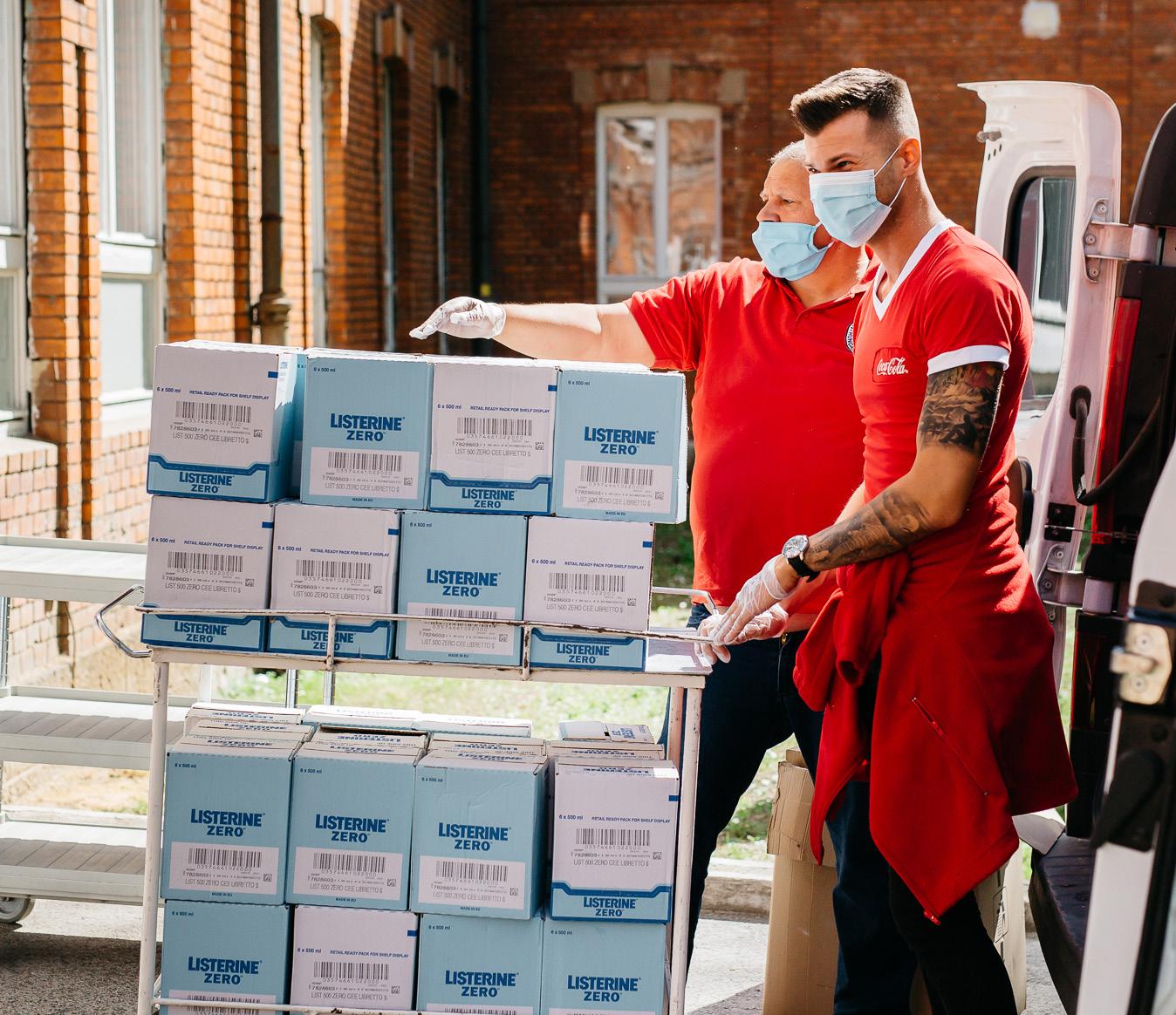
It also provided the infrastructure to facilitate the operation, and five employees as volunteers, who worked full-time for weeks to distribute and deliver donations in five regions of Hungary.
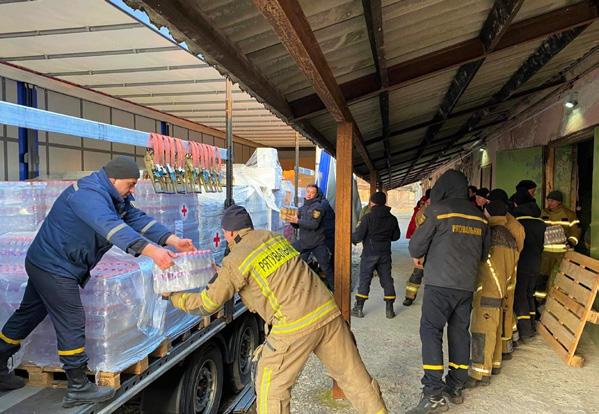
Since the outbreak of the war in Ukraine in 2022, CCHH has provided refugees with continuous care, logistic support, as well as product and financial donations worth €90,000.
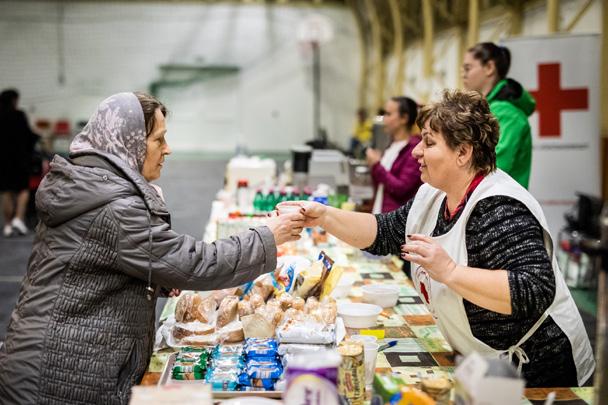
Looking Ahead
For Békefi, CCHH’s priorities for the year ahead are crystal clear.
“Our aim is to further build on our capabilities and sales excellence in the NARTD market, strengthen our presence in the coffee market, earn a foothold in the Hungarian snack market and develop our growing premium spirits portfolio,” he says.
“We are expecting a difficult year, mainly due to inflation and its effects, which were heavily present in Q3 of 2022, but especially in Q4. The current situation encourages us to make further improvements to strengthen the energy saving and modernisation measures that we started earlier. We are systematically switching to renewable energy sources.”
Promotions, appealing offers and new products will also play a part in the year ahead. “What we can count on is the high quality of our products and their popularity among consumers,” he adds.
“We focus our resources on areas where they generate the highest returns and we strive to reduce our costs through automation, modernisation of our operations and working closely with our suppliers and customers. In this rapidly changing environment, we are preparing with a variety of scenarios to adapt as quickly as possible to changes that are difficult to predict.”
One thing is certain - with the vision, determination, and commitment of Békefi and his team, CCHH will continue to thrive.


